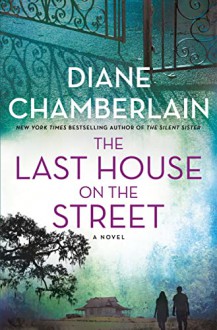
I listened to this book on a Playaway as I worked outside and it makes an excellent audio book. The book alternatives between the year 2010 and 1965. I liked listening to both sides of the story and seeing how the two stories came together, how the characters transitioned through the years and how history impacted the story. This is a story about race and how race can bring out the best and the worst in individuals.
The year is 2010 and they had returned to Kayla’s hometown. This was supposed to be their dream house, a place where they could put down some roots. So why is it, that only Kayla and their young daughter, were moving into this enormous, beautiful home today?
It was labeled an accident. This “accident” had left Kayla a widow and now, as she takes Rainie through the house, she thinks about this event and how it changed their lives. Kayla is warned by a mysterious woman not to move into the house and she has numerous “incidents” to scare her away from this new development yet she stays. Just down the road, Elle has returned home to take care of her aging parents. Kayla and Elle cross paths and although it would be nice to have someone close to talk with, they know their conversations feel forced.
Meanwhile in 1965, Ellie wants to volunteer over the summer instead of working in her father’s pharmacy. I love that her aunt was her motivation and that she’s committed to her cause although she experiences a lot of negative response about what she feels so passionate about. She’s motivated by SCOPE and MLK and she’s bound-and-determined to help those less fortunate. What an eye-opening experience this is for her! She never knew what life was like beyond her own world and she finds that she has a lot to offer even when those in her own family don’t feel she does. I was frustrated with Ellie a few times as I felt she gave in and I couldn’t understand why she bailed after everything she had seen and done; it just didn’t make sense.
I enjoyed the intensity as Ellie went outside her normal boundaries and she did what her heart told her to do. I loved how the two stories came together and how the women in the hook were different yet they were alike. I couldn’t stop thinking about this book when I had to lay it down, for what did their futures look like?. This was a great read for me – I really enjoyed it!

 Log in with Facebook
Log in with Facebook 







